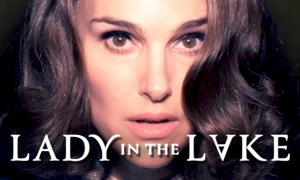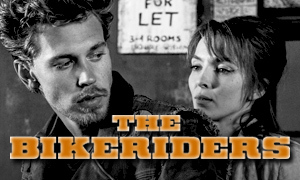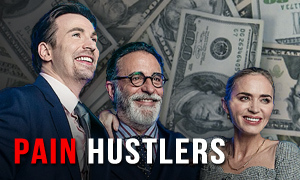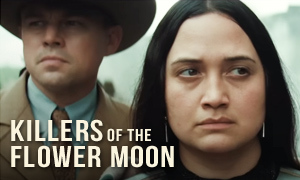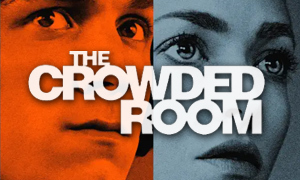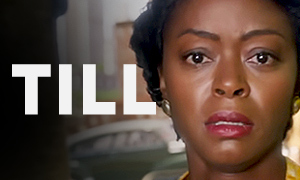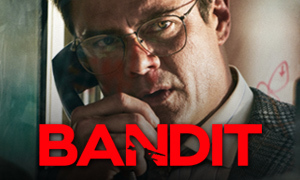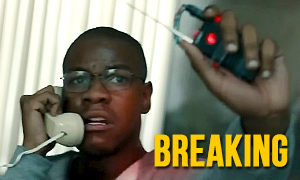Spotlight: History vs. Hollywood
| REEL FACE: | REAL FACE: |
Michael Keaton
Born: September 5, 1951 Birthplace: Coraopolis, Pennsylvania, USA | Walter "Robby" Robinson
Born: January 13, 1946 Birthplace: Boston, Massachusetts, USA Position: Reporter, Editor, Spotlight Team Leader |
Mark Ruffalo
Born: November 22, 1967 Birthplace: Kenosha, Wisconsin, USA | Michael Rezendes
Birthplace: Bangor, Maine, USA Position: Reporter |
Rachel McAdams
Born: November 17, 1978 Birthplace: London, Ontario, Canada | Sacha Pfeiffer
Born: September 7, 1971 Birthplace: Columbus, Ohio, USA Position: Reporter |
Liev Schreiber
Born: October 4, 1967 Birthplace: San Francisco, California, USA | Martin "Marty" Baron
Born: February 24, 1954 Birthplace: Tampa, Florida, USA Position: Editor-in-Chief |
Brian d'Arcy James
Born: July 1, 1968 Birthplace: Saginaw, Michigan, USA | Matt Carroll
Position: Reporter |
John Slattery
Born: August 13, 1962 Birthplace: Boston, Massachusetts, USA | Ben Bradlee Jr.
Born: August 7, 1948 Birthplace: Manchester, New Hampshire, USA Position: Assistant Managing Editor |
Gene Amoroso
| Stephen Kurkjian
Born: August 28, 1943 Birthplace: Boston, Massachusetts, USA Position: Reporter |
Stanley Tucci
Born: November 11, 1960 Birthplace: Peekskill, New York, USA | Mitchell Garabedian
Born: July 17, 1951 Birthplace: Lawrence, Massachusetts, USA |
Billy Crudup
Born: July 8, 1968 Birthplace: Manhasset, New York, USA | Eric MacLeish
Born: October 31, 1952 Birthplace: Boston, Massachusetts, USA |
Len Cariou
Born: September 30, 1939 Birthplace: Winnipeg, Manitoba, Canada | Cardinal Bernard Law
Born: November 4, 1931 Birthplace: Torreón, Mexico |
Neal Huff
Birthplace: New York City, New York, USA | Phil Saviano
Born: November 28, 1961 Birthplace: E Boston, Massachusetts, USA Victim |
What caused the Boston Globe to decide to pursue the story?
The real Spotlight team's investigation into Father John J. Geoghan led to the discovery of other abusive priests.
"In Florida virtually everything is public," says the real Walter Robinson (Michael Keaton in the movie), implying that Marty Baron was not used to the more private way things were done up north (Variety.com). Baron had the Spotlight team begin an investigation into Father John J. Geoghan, who had been allowed to keep his job after his abuse of young parishioners had been discovered and kept hushed for more than 30 years (Boston.com). It turned out that Father Geoghan was just the tip of the iceberg.
How many priests did the Spotlight team learn were involved in sexual abuse in Boston over the years?
"There were many, many other priests, we thought perhaps 15 or 20 at the time, who had done the same thing," says the real Walter Robinson, "yet the Archdiocese had covered up their crimes by making secret settlements. ... In the end, it turned out to be almost 250 priests in Boston who had molested children over several decades" (NPR). Prior to the credits, the movie states a parallel value of 249. The church had shuffled some of the predatory clergy from parish to parish to help prevent their crimes from being exposed (BostonGlobe.com).
Did a priest really freely admit to Sacha Pfeiffer that he had molested children?
The priest did admit it, but unlike the movie, he was interviewed by Globe reporter Steve Kurkjian, not Sacha Pfeiffer. Rev. Ronald H. Paquin told Kurkjian (portrayed by Gene Amoroso) that he had molested boys until 1989, the year before the Archdiocese of Boston removed him from his position. His crimes spanned 15 years across two different parishes. "Sure, I fooled around. But I never raped anyone and I never felt gratified myself," Paquin told Kurkjian. Like in the film, Paquin said he himself was raped by a Catholic priest when he was a teenager. The actual interview took place in the living room of Paquin's apartment, not at the front door. Though Sacha Pfeiffer (Rachel McAdams in the movie) didn't conduct the interview in real life, she did write the story based on Kurkjian's interview notes.
Is the Catholic Church really as powerful in Boston as it is portrayed to be in the movie?
Yes, according to the real Walter Robinson, the Catholic Church had great political power in Boston and always put pressure on institutions like The Boston Globe. "You had to be very, very careful because of its power, and in this case it meant for us getting documents." -NPR
How does the Catholic Church feel about the Spotlight movie revisiting the abuse scandal?
Boston Cardinal Sean P. O'Malley, who took over in 2003 after disgraced Cardinal Bernard F. Law stepped down, says that the movie depicts "a very painful time" in the history of the church, when a series of reports forced the church "to deal with what was shameful and hidden." A spokesman for Cardinal O'Malley says that the archbishop would not discourage people from seeing the movie.
O'Malley reiterated his commitment to eradicating abusive priests from the church. "The Archdiocese of Boston is fully and completely committed to zero tolerance concerning the abuse of minors. We follow a vigorous policy of reporting and disclosing information concerning allegations of abuse." -BostonGlobe.com
Is there a higher incidence of sexual abuse in the Catholic Church than in the general public?
No. In researching the Spotlight true story, we discovered that as of 2002, the incidence of pedophilia in the Catholic Church was around 6%, which is in line with the general population (this percentage is also stated in the movie). This means that despite what some have come to believe, there is no disproportionate separation between priests and civilians when it comes to this terrible crime. The efforts by some members of the church to cover up the abuse is what makes it perhaps significantly more tragic. -The O'Reilly Factor Phil Saviano Interview
Were the reporters really not very religious?
Yes. The screenwriters realized that having at least one of the reporters be more in touch with his or her faith could enhance the drama, but the reality was that none of them were in touch with their faith. The real Spotlight team members were all lapsed Catholics (Wall Street Journal). After conducting their research for the 2001 Globe story, some of the reporters found it impossible to return to their religion. "I was a lapsed Catholic at the time, and I'm super lapsed now," says the real Walter Robinson.
"Even though I was a lapsed Catholic, I still considered myself a Catholic and thought that possibly, some day, I would go back to being a practicing Catholic," says the real-life Michael Rezendes (portrayed by Mark Ruffalo in the movie). But after this experience, I found it impossible to do that - or even think about doing that," he said. "What we discovered was just too shattering." -People.com
Are the actors in the movie very religious?
To a large degree, no. Actor Mark Ruffalo, an outspoken, pro-choice political activist, told reporters at Spotlight's Boston premiere about his unsavory experience with the Catholic Church. "I grew up Catholic and the hypocrisy of it and the dogma of it had chilled my relationship with it very early on. Even as a boy, I could feel it. There was a cruelty in the way the nuns treated us. It just didn't jibe with the teachings of Christ that were being taught, you know?" Ruffalo said that he had friends who were victims of clergy abuse. -People.com
Michael Keaton told Prestige Hong Kong magazine that he "liked going to Catholic school" as a boy and his experience was "fine." He continued by saying, "It was classic knuckle-rapping and stand in the corner and corporal punishment. But it was just sort of what it was. I didn't come away scarred for life." Despite being raised Catholic, Keaton acknowledges that he is not very religious today. -MovieFone.com
Actor Liev Schreiber, who portrays Globe editor Marty Baron in the Spotlight movie, had a rather convoluted religious upbringing. His mother's family was Jewish and he has described her as a "far-out Socialist Labor Party hippie bohemian freak who hung out with [William] Burroughs" (LAMag.com). She gave him a Hindu name for a time, Shiva Das, and sent him to high school at Friends Seminary, a Quaker school in Manhattan operated by the Religious Society of Friends. Today, he seems to associate somewhat with his Jewish roots, though he is not very devout. "The funny thing is that I write and I act a lot about being Jewish," says Schreiber, "but I don't really think about it as a regular person" (TimeOut.com).
Did many more victims come forward after the story broke?
The real Spotlight team interviewed 30 or 40 victims during their research, which often took an emotional toll on the reporters, as emphasized in the movie. Once the story reached the masses in early 2002, more victims came forward, no longer believing they were alone in what had happened. "We received calls just in the Boston archdiocese from over 300 victims in just a month or two," says Walter Robinson. He notes that these victims were all adults who had suffered the abuse years earlier. Most had been too afraid to come forward. -NPR
Has the Catholic Church removed the bishops who tried to cover up the abusive priest's crimes?
Though he is pleased with the meaningful steps that the church has taken, former Globe editor Marty Baron (portrayed by Liev Schreiber in the movie) says that it took the church too long "to name a tribunal to hold the bishops accountable for having participated in the cover-up - where they knew that priests who were in their diocese were abusing kids, and yet they were reassigned from parish to parish."
"It's been 14 years. One would have thought this would have been addressed before now," Baron said of the church's announcement in the summer of 2015 that it was going to name a tribunal. "Clearly this is an issue that endures, and one that the church is still grappling with." -People.com
Why was The Boston Globe's story more significant than other similar stories of abuse within the Catholic Church?
"All over the country there were instances [of abuse]," Spotlight movie director Tom McCarthy told NPR, " ... but this story, this reporting, it connected the dots, and that is what sort of blew the roof off of this crisis."
Did the story earn the Spotlight team a Pulitzer Prize?
Yes. The real Spotlight team members won a Pulitzer Prize in 2003 for their series of reports on the Catholic Church child abuse scandal and its systemic cover-up. -BostonGlobe.com
Were the original reporters and editors involved in the making of the movie?
Yes. "We would interview each of them about the same moments, to triangulate what happened, 10 or 11 years after the investigation," said director and co-screenwriter Tom McCarthy. "Put it sometimes in their words, or our words, or a combination. ... These reporters and editors read almost every draft we threw at them." -Wall Street Journal
"I was definitely nervous when this idea of a movie first got floated," says the real Sacha Pfeiffer (pictured below). "[The script] followed what really happened. There is very little license in terms of changing things that happened along the way. So, I think they ultimately created a really real-life, authentic, true-to-history story, and I feel grateful for that."
Did Michael Keaton meet the real Walter Robinson?
Yes, in researching the true story behind the Spotlight movie, we learned that in addition to watching video of old news appearances featuring Robinson, Michael Keaton met the real Walter Robinson over dinner. Robinson described the meeting as an "odd experience" because Keaton spent the entire time studying his mannerisms, which he says Keaton gets right in the movie. -NPR
Spotlight Team Interview & Related Videos
Further explore the Spotlight movie true story by watching an interview with several key members of the Spotlight team that broke open the Catholic Church child abuse scandal. Then watch an interview with abuse victim Phil Saviano.
Link-to-Learn More:
- The Boston Globe's First Article that Exposed the Catholic Church Scandal in 2002
- The Current Boston Globe Spotlight Team
- Official Spotlight Movie Website
